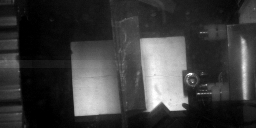
Material Science.
Cutting edge materials science without the 20 year lead time to commercialisation.
Using the Validation Platform and our in-depth materials science expertise, we develop novel materials and providing modelling and characterisation consultancy services.
We accelerate the time between a material's first discovery and its mass adoption.
Phase Change Armour
Using nanosecond-fast phase change to absorb energy, we provide superior protection against armour piercing projectiles and fragmentation. This patent-pending material technology, we call Syntech.
Syntech provides an alternative to ultra-hard ceramics and steels, reducing cost, weight and providing improved performance.
Syntech is a step change in armour not seen since Kevlar revolutionised the use of textiles for armour. Our composite structures will drastically improve the ballistic and armour piercing performance over currently available technology for any application, be it vehicle, personnel or building.
Contact us for a white paper and more information on our phase change armour technology.

Quasi-static Testing
Compression, tension and flexure tests

Low and High Temperature Testing
Dynamic testing with sample temperatures from approx.
-40 °C to +100 °C

Split-Hopkinson Pressure Bar (SHPB) Testing
Dynamic uniaxial compression at strain rates of 1,000 – 10,000 /s

Engineering and True Stress-strain Response
Accurately determined using optical tracking methods, high-speed photography and specialised lighting systems

Drop Weight Testing
Dynamic uniaxial compression at strain rates of 50 – 1,000 /s

Optical Microscopy
Brightfield, transmitted and incident, and darkfield incident illumination of samples
Bespoke Material Characterisation
Dynamic material testing under rapid deformation requires constant expert input to overcome engineering challenges. Even common engineering materials can exhibit behaviour that becomes highly complex under rapid loading conditions or unusual ambient conditions.
Synbiosys offers the knowledge and experience to identify and characterise the materials needed for highly demanding environments. We develop bespoke material preparation and testing methodologies to provide the highest possible precision and accuracy.
With this data, Synbiosys can also develop and validate material models.
Bespoke Material Modelling
Synbiosys provides extensive material modelling expertise and experience across many classes of materials including common engineering materials, cellular materials, soft viscoelastic materials and brittle materials. We use material characterisation data, such as raw stress strain curves, to formulate material model parameters for commercial FEM software including Abaqus, AutoDyne and LS-DYNA.
Before and After Pressure Transmission
Prony-Odgen Model for an Elastomeric Material Under Blast Loading
Numerical Model Validation
We can also provide validation services, both at laboratory scale and at large scale. We have instrumentation suitable for use on explosive ranges, for nanosecond precision of dynamic events.
This data can be used to verify and validate complex numerical simulations.
-
Photonic Doppler Velocimetry (PDV) system, suitable for measuring point velocities at nano second precision.
-
Blast wave interaction with complex geometries and materials.
-
Precise triggering solutions for precision data capture.
-
Low coherence illumination sources.
Explore



